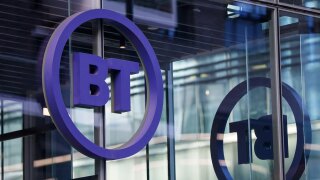The Competition and Markets Authority (CMA) said that this was one of the three options it was considering as possible outcomes of the investigation.
The two other options are to regulate Motorola’s rate of return on the Airwave network and, secondly, to require open book accounting, including the mandatory reporting of capital expenditure. The CMA said the current position meant “significant detriment for customers”.
Andrea Coscelli, chief executive of the CMA, said: “As the sole provider of critical mobile radio network services used by our emergency services, we’re concerned that Motorola could be cashing in on its position, leaving taxpayers to cover the cost.”
Airwave was due to be switched off and replaced in 2019 by the 4G-based Emergency Services Network, for which EE – then a joint venture of Deutsche Telekom and Orange – won the contract in 2015.
BT acquired EE in 2016. But BT/EE is long delayed in completing work on the ESN – for reasons that are unclear. The latest estimates are that Airwave will need to continue until 2027, by when ESN will be eight years late, and by when 5G will be well established across the country.
Airwave is intended to be used by police, ambulance, fire and other emergency services in Great Britain – that is, England, Scotland and Wales, but not Northern Ireland. It was originally built on 2G technology in 2000 by BT’s then mobile division, Cellnet, which was hived off in 2002 as O2, an independent company, which included Airwave.
Telefónica bought O2 in 2006 for £18 billion, and the following year it sold Airwave to Macquarie for £1.9 billion.
Motorola Solutions bought Airwave for £817 million in 2015 – despite the facts that it is the main supplier of equipment for Airwave and that it also supplies ESN.
The CMA complained that “the burden of any excess profits made by Motorola ultimately falls to the British taxpayer”.
The authority said the Home Office – the UK government department that looks after emergency services – “is in a weak bargaining position and unable to secure value for money” because it has “insufficient information” from Motorola, “particularly in relation to the projects and associated costs needed to maintain and refresh the current network”.
The CMA has not set a timetable for the enquiry, which is led by Martin Coleman, a retired partner in the law firm Norton Rose Fulbright. But the authority said it wanted to see the conclusions “expeditiously”.
As well as an “asymmetry of information between Motorola and the Home Office”, the CMA warned about “Motorola’s position as owner of Airwave Solutions and key supplier in the design and roll-out of ESN”.
This “may be resulting” in what it called “weak competitive constraints on Motorola”, because the company could “shape or otherwise delay the design and roll-out of ESN, and thus hamper the emergence of the significantly different competitive dynamics envisaged by the Home Office when it procured the design and roll-out of ESN”.
The CMA warned that Motorola derives “significant profits” from operating the Airwave network. It said there is an “absence of competitive tension in the award of the original contract, with only one supplier taking part in the bidding process”.
The CMA said it “is concerned that the market for the supply of the mobile radio network used by all emergency services in Great Britain might not be working well, resulting in a more expensive service for customers and, ultimately, the taxpayer”.
Motorola said in a statement: “We strongly believe this market investigation is not warranted. We reject the assertion that we have an incentive to delay the implementation of the ESN.”
According to the UK government, “there are 300,000 frontline emergency service users who will depend on ESN, using handheld devices or operating equipment in 45,000 vehicles, 66 aircraft and more than 100 control rooms”.






